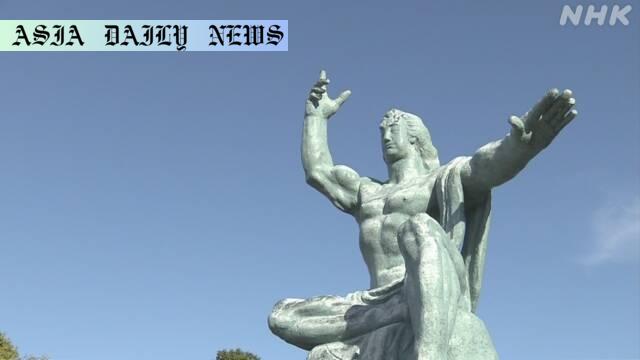Peace declaration reveals urgency for ceasefire, highlights nuclear disarmament, and calls for global citizenship in addressing wars.

Nagasaki’s Peace Declaration: A Call for Global Ceasefire
The mayor of Nagasaki, Suzuki Shiro, recently unveiled the main points of this year’s peace declaration in preparation for the upcoming 80th anniversary of the atomic bombing on August 9. At the core of the declaration lies a powerfully urgent message: the world must strive for an immediate and universal ceasefire to avoid further conflicts and wars. This annual event, steeped in history and symbolism, is not merely a solemn remembrance of past atrocities but a demand for action in the present. Collaborative efforts among atomic bomb survivors and experts have allowed this declaration to resonate globally, reminding humanity of the lessons from 1945. Specifically, the declaration draws concerns over the growing threats of nuclear war and argues for collective responsibility to reignite the nuclear taboo that appears to be weakening over time. Mayor Shiro emphasized how closely woven the efforts of atomic bomb survivors are with global peace efforts, hoping for strengthened resolve among nations.
Global Citizenship and Nuclear Abolition
The 2023 declaration takes a unique tone by emphasizing the necessity of global citizenship—a concept transcending barriers like race and nationality. By urging individuals worldwide to look beyond their immediate interests and see themselves as integral parts of a global community, the declaration fosters unity. It points out that Nihon Hidankyo, the Japanese organization representing atomic bomb survivors, won the Nobel Peace Prize last year for their dedication to promoting nuclear disarmament. The declaration reminds global citizens that such prestigious recognition underscores the importance of eliminating weapons of mass destruction once and for all. Furthermore, it calls for concrete action from world leaders, asking for a detailed and actionable roadmap for the abolition of nuclear weapons. By urging the Japanese government to sign and ratify the Treaty on the Prohibition of Nuclear Weapons, the declaration sets an example for leadership, integrity, and responsibility at an international level.
Recognizing the Sacrifices of Atomic Bomb Survivors
The declaration also places significant focus on honoring the legacy of atomic bomb survivors. It highlights their painstaking efforts to establish the global ‘nuclear taboo,’ a moral and social rejection of the use of nuclear arms. Regrettably, both globally and even within Japan—a nation uniquely scarred by the devastation of atomic bombings—this strong opposition to nuclear weapons is beginning to weaken. Mayor Suzuki expressed concerns that contemporary global politics increasingly ignore this hard-won perspective. With conflicts across the globe threatening to escalate into nuclear engagements, he stressed the importance of acknowledging the painful but invaluable lessons learned from the devastation of Hiroshima and Nagasaki. Through the declaration, the survivors’ stories are not only remembered but also positioned as a moral foundation, urging the next generation to take up the mantle of nuclear disarmament.
Commentary
The Significance of Nagasaki’s Peace Declaration
The peace declaration, unveiled by Mayor Suzuki Shiro, serves as an essential reminder of humanity’s collective responsibility to prevent war and nuclear annihilation. In a time fraught with international conflicts, such a call for peace cannot be timelier. The inclusion of survivors and experts in composing the declaration lends it authenticity and ensures that it echoes the sentiments of those who have witnessed the horrors of war firsthand. Their unwavering dedication to keeping the ‘nuclear taboo’ alive demonstrates an inspiring resolve to leave behind a safer world for future generations. Such actions remind us all of the importance of prioritizing diplomacy and understanding in resolving international disputes.
Global Citizenship: A Unifying Vision
One of the most inspiring components of the peace declaration is its emphasis on global citizenship. This idea of transcending racial, national, and cultural differences to address global challenges collaboratively is both profound and necessary. It encourages us to look beyond our immediate encounters and towards solving issues that threaten humanity as a whole—such as nuclear warfare and climate change. The mention of Nihon Hidankyo’s Nobel Peace Prize demonstrates that such efforts are never overlooked and can achieve global recognition. By urging individual and governmental responsibility, the declaration effectively bridges personal commitment with structured action, creating a path for achieving worldwide peace.
A Call to Action for Governments
The declaration is not merely an appeal to the conscience but a direct call for tangible actions from the global community. Its urging for Japan to sign and ratify the Treaty on the Prohibition of Nuclear Weapons emphasizes the nation’s accountability as a victim of nuclear attacks. Moreover, the request for world leaders to present a concrete roadmap for nuclear abolition in the Nuclear Non-Proliferation Treaty (NPT) review conference underscores the demand not just for dialogue but for results-oriented diplomacy. By setting such clear goals, the declaration positions itself as a blueprint for policymakers worldwide.


